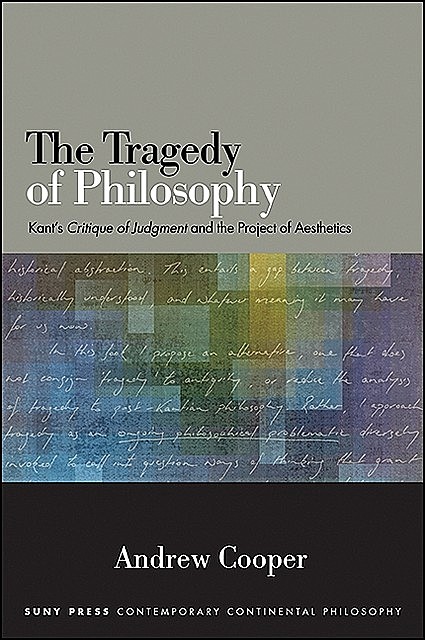Reframes philosophical understanding of, and engagement with, tragedy.
In The Tragedy of Philosophy Andrew Cooper challenges the prevailing idea of the death of tragedy, arguing that this assumption reflects a problematic view of both tragedy and philosophy—one that stifles the profound contribution that tragedy could provide to philosophy today. To build this case, Cooper presents a novel reading of Immanuel Kant’s Critique of Judgment. Although this text is normally understood as the final attempt to seal philosophy from the threat of tragedy, Cooper argues that Kant’s project is rather a creative engagement with a tragedy that is specific to philosophy, namely, the inevitable failure of attempts to master nature through knowledge. Kant’s encounter with the tragedy of philosophy turns philosophy’s gaze from an exclusive focus on knowledge to matters of living well in a world that does not bend itself to our desires. Tracing the impact of Kant’s Critique of Judgment on some of the most famous theories of tragedy, including those of G. W. F. Hegel, Friedrich Nietzsche, Martin Heidegger, and Cornelius Castoriadis, Cooper demonstrates how these philosophers extend the project found in both Kant and the Greek tragedies: the attempt to grasp nature as a domain hospitable to human life.
Andrew Cooper is a Postdoctoral Research Fellow at the University of Bonn, Germany.


